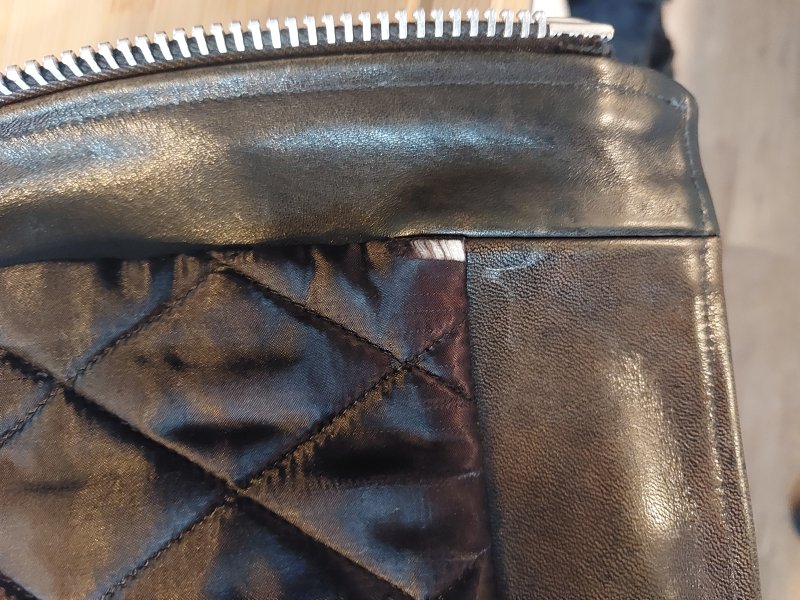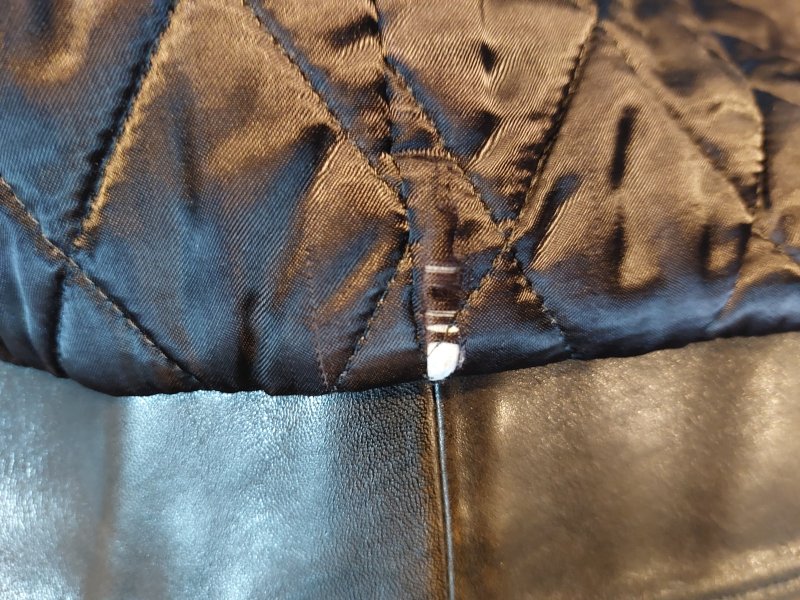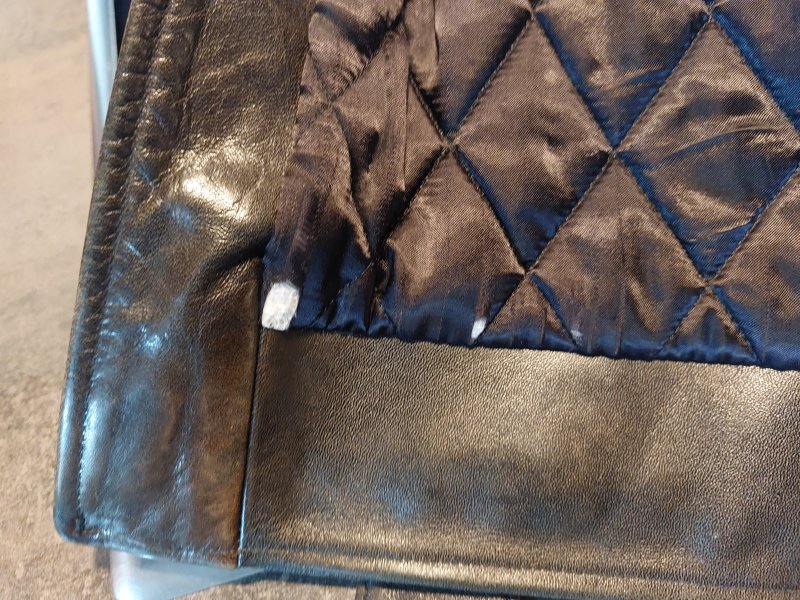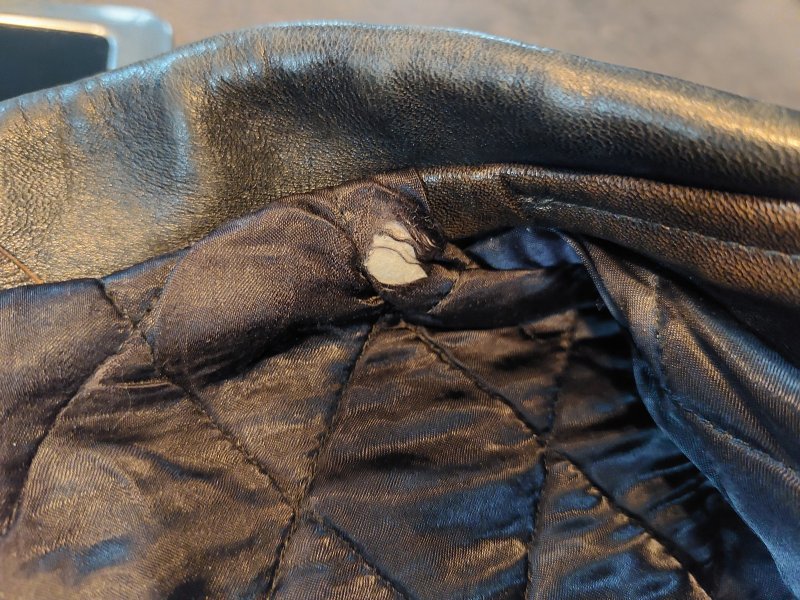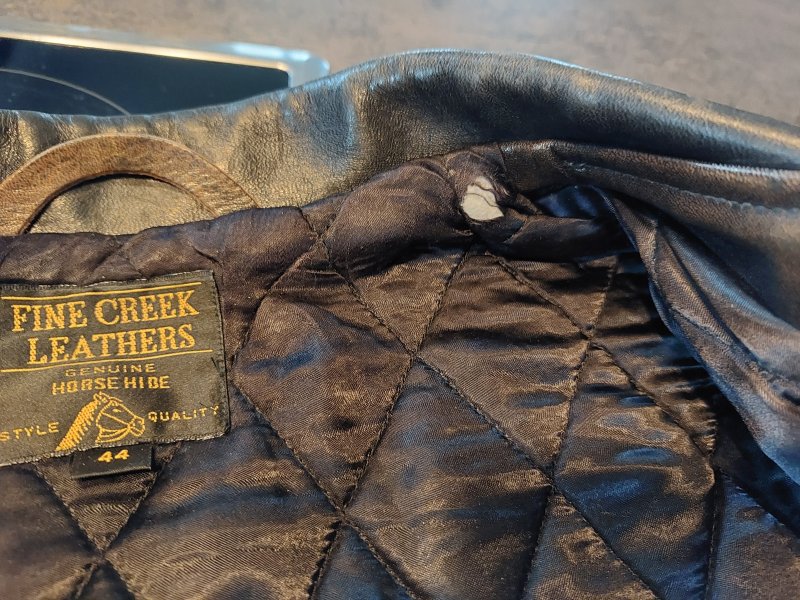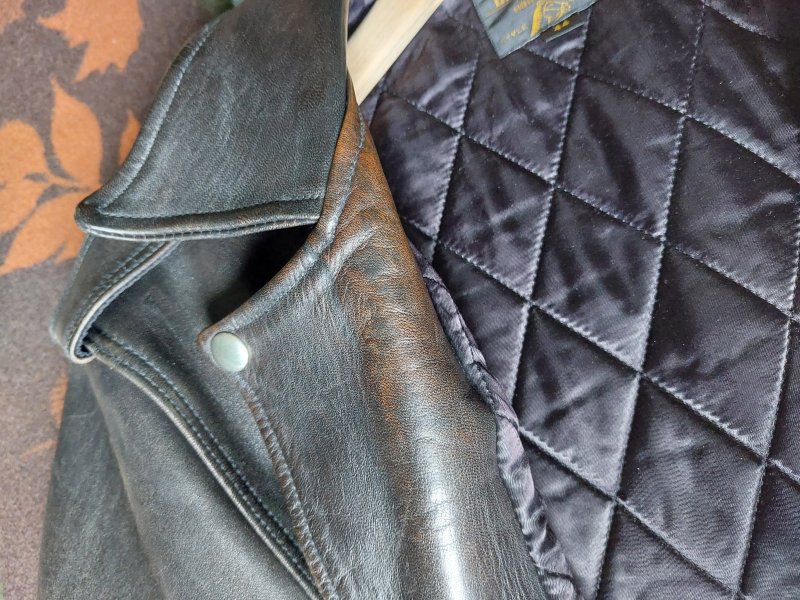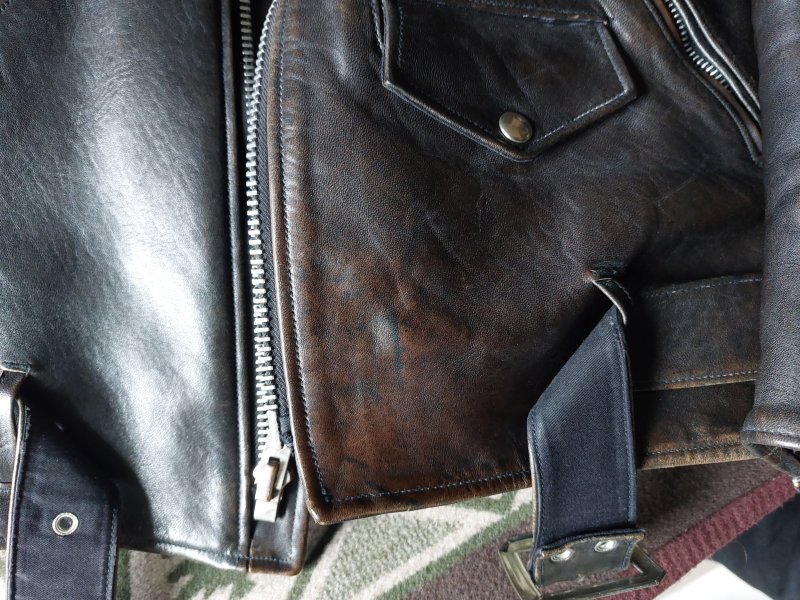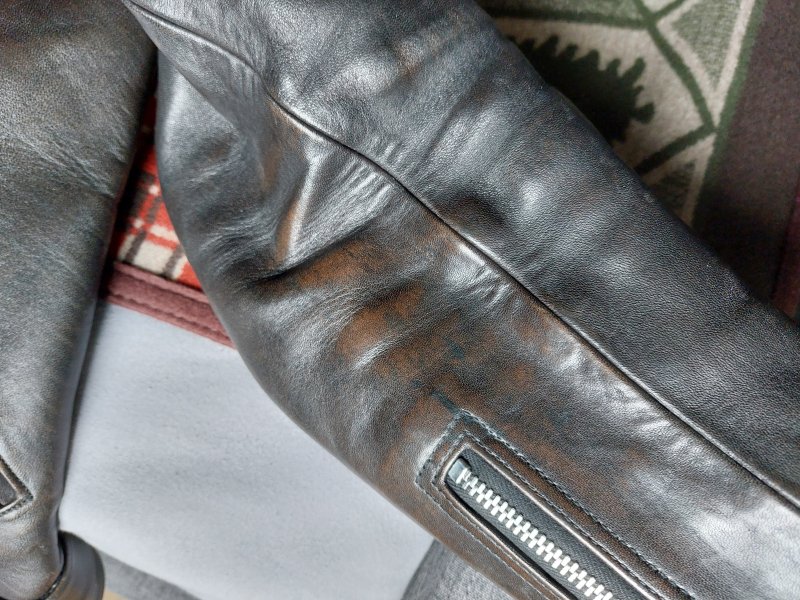ABCD
I'll Lock Up
- Messages
- 7,462
Washing such an old jacket is quite risky. The vegetable tanned leather soaks up water like a sponge. When wet the panels are much heavier which will put a lot of stress on the seams and lining. But the jacket heavily reeked of BO so there was no other option.Master class process. Friend, love your work. I was wondering if you can share more about the washing process you develop to clean the goat.
I hand washed the jacket in the sink using mild detergent. It's important to get the jacket completely wet, not just the smelly pits. Otherwise you'll end up with dark water marks. As you can see the water turned completely brown. That's not dirt, those are tannins that are flushed out. I was worried that I would end up with a pale jacket without any color depth so I quickly took it out of the water. Without wringing it out I let the jacket dry on the floor on top of some towels. Never hang a jacket to dry, it will deform and, in case of vegetable tanned leather, the water (and tannins) will move down towards the hem of the jacket causing dark stains.
It took three days for the jacket to dry. After two days dark stains started to form at spots where the topcoat was worn off. Luckily they eventually disappeared when the jacket was completely dry.
The weight of the water caused too much stress on the lining, which ripped apart. No biggie because it needed to be replaced anyways as it was too short for the jacket as a result of a previous repair.
When dry I applied reddish brown shoe cream to the jacket in order to give it back its luster.
I shipped the jacket to Aero Leathers to have a fresh new moleskin lining installed, plus an original Block label which was gifted to me by @Yamahana .
Julie Leitch, Aero's most experienced machinist, working on the reline. The sleeve lining was still intact so they kept that original.
The end result. The jackets smells fresh and feels as solid as can be. Good to go for another 90 years
